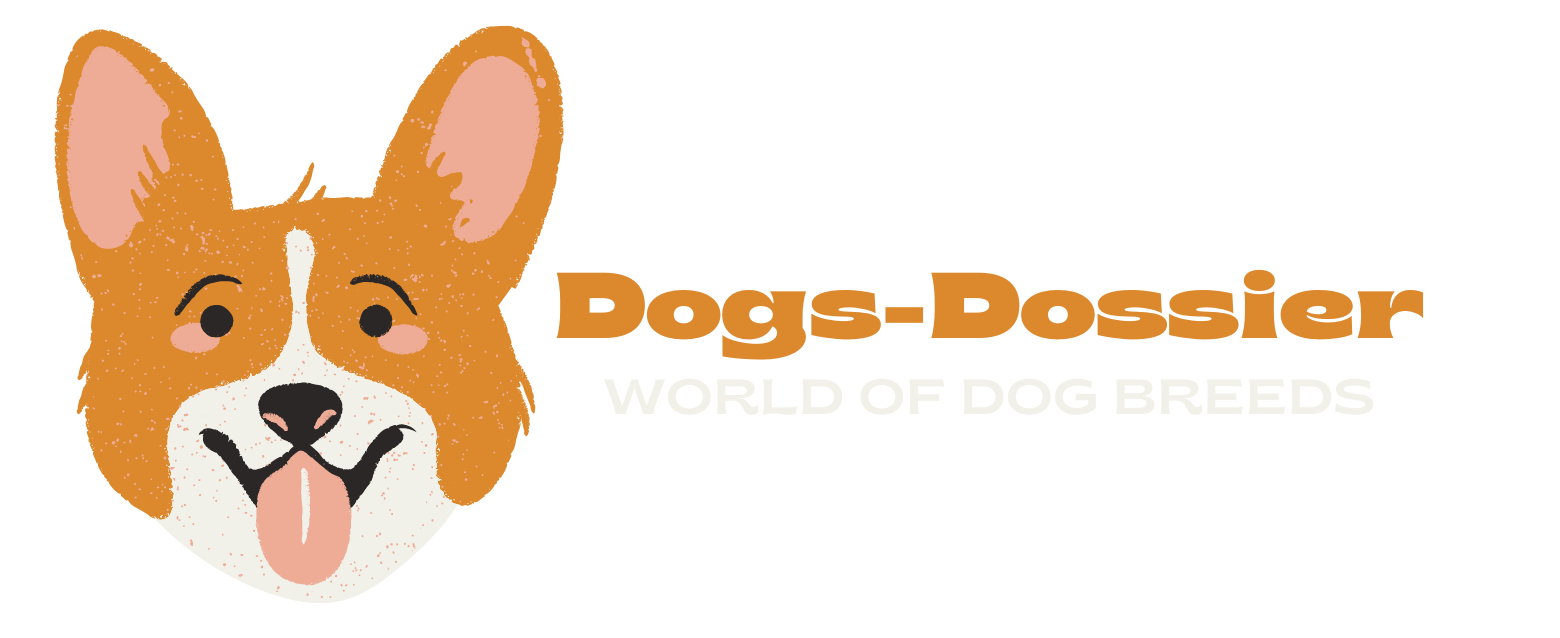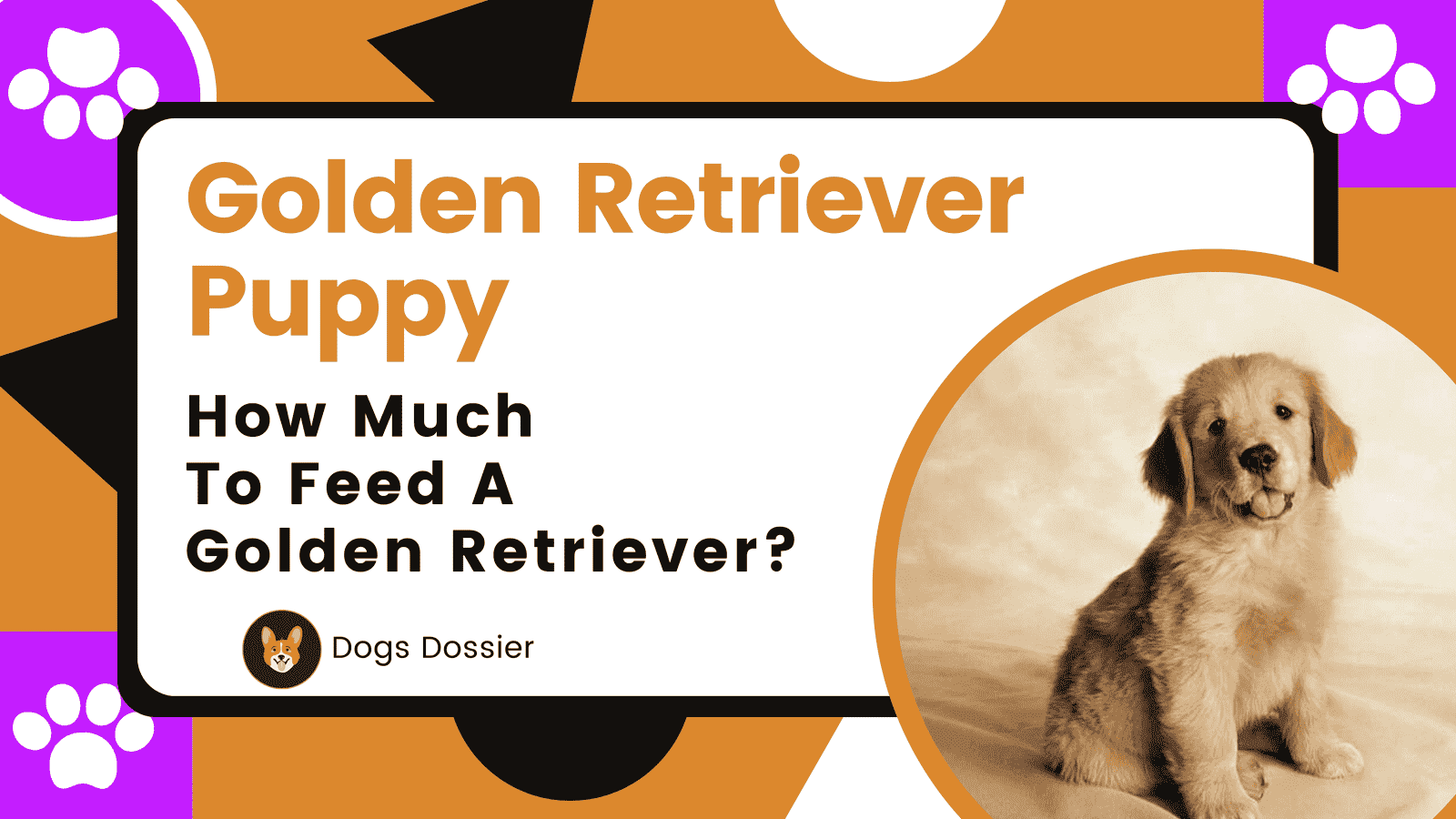How Much To Feed a Golden Retriever Puppy?
Golden Retriever puppies are bundles of joy, but they also come with specific nutritional needs that require careful attention.
As a pet owner, understanding how much to feed your Golden Retriever puppy is crucial for their growth, development, and overall health.
Understanding Nutritional Needs
Proper nutrition is essential for the healthy development of Golden Retriever puppies. A balanced diet provides the necessary nutrients for bone growth, muscle development, and overall vitality.
Several factors influence the feeding requirements of Golden Retriever puppies, including their age, weight, activity level, and metabolism.
Caloric Requirements for Growing Golden Retrievers
Golden Retriever puppies have high energy needs due to their active nature and fast metabolism. It’s important to provide them with enough calories to fuel their growth and development.
Consulting with your veterinarian can help you determine the appropriate daily caloric intake based on factors such as age, weight, and activity level.
Key Nutrients: What Your Golden Retriever Puppy Needs
In addition to calories, Golden Retriever puppies need specific nutrients to support their growth and development.
These include protein for muscle growth, carbohydrates for energy, fats for skin and coat health, and vitamins and minerals for overall health.
Choosing a high-quality puppy food that contains these essential nutrients is essential for your puppy’s health.

Feeding Guidelines for Golden Retriever Puppies
Determining the appropriate amount of food to feed your Golden Retriever puppy can be challenging but essential.
Generally, puppies require more calories and nutrients than adult dogs to support their rapid growth. It’s recommended to consult with your veterinarian to establish a feeding plan tailored to your puppy’s specific needs.
Golden Retriever puppies should be fed high-quality puppy food that is specially formulated to meet their nutritional requirements. Whether you choose dry kibble or wet food, ensure that it provides the right balance of protein, carbohydrates, fats, vitamins, and minerals.
Golden Retriever Puppy Feeding Chart
Deciphering the Golden Retriever Puppy Feeding Chart involves understanding the information provided in the chart to determine the appropriate amount of food to feed your puppy at different stages of their growth.
This chart serves as a helpful reference, offering general guidelines based on your puppy’s age and weight.
| Age | Weight Range (lbs) | Amount of Food (Cups) |
|---|---|---|
| 8 weeks | 10-20 | 1-2 |
| 3-4 months | 20-30 | 2-3 |
| 5-7 months | 30-45 | 3-4 |
| 8-12 months | 45-70 | 4-6 |
By interpreting the feeding chart, you can ensure that your golden retriever puppy receives the correct portion sizes tailored to their specific needs.
For instance, at 8 weeks of age, when puppies typically weigh between 10 to 20 pounds, the chart suggests feeding them 1 to 2 cups of food.
As puppies progress to 3-4 months old, with weights ranging from 20 to 30 pounds, the recommended amount increases to 2 to 3 cups. Moving further along, between 5 to 7 months, as puppies continue to grow and may weigh between 30 to 45 pounds, the suggested portion size adjusts to 3 to 4 cups.
Lastly, during the 8 to 12 months stage, as puppies approach adulthood and their weight ranges from 45 to 70 pounds, the chart advises feeding them 4 to 6 cups of food.
These recommendations are based on the average needs of Golden Retriever puppies but may vary depending on individual factors such as activity level, metabolism, and any dietary restrictions recommended by a veterinarian.
Monitoring your puppy’s weight and consulting with a vet are crucial for ensuring they receive the right amount of nutrition for their development.
How Much to Feed a Golden Retriever Puppy?
Golden Retriever puppies are adorable bundles of energy, but determining how much to feed them can be a challenge. It’s essential to understand their nutritional needs and feeding requirements to ensure they grow up healthy and strong.

Here’s a comprehensive guide to feeding your Golden Retriever puppy at every stage of their development.
Feeding Golden Retriever Puppy at Different Stages
Feeding Guidelines from 8 Weeks to 3 Months
During the first few months of life, Golden Retriever puppies require frequent meals to support their rapid growth and development. It’s recommended to feed them three to four times a day, providing them with high-quality puppy food formulated for their nutritional needs.
Transitioning: 3 Months to 6 Months Old
As your Golden Retriever puppy grows older, you can gradually reduce the number of meals to two to three times a day. This helps transition them to a more typical feeding schedule while still providing them with the nutrients they need to thrive.
Adjusting the Amount as Your Golden Retriever Nears Adulthood
As your puppy approaches six months of age, you may need to adjust the amount of food you feed them based on their individual needs and activity level. It’s essential to monitor their weight and body condition to ensure they’re receiving the appropriate amount of food for their size and age.
Wet Food Vs. Dry Food for Your Golden Retreiver
When deciding between wet food and dry food for your golden retriever puppy, it’s essential to consider the features and benefits of each option to make the best choice for your furry friend.
Wet Food:
- Taste and Texture: Wet food offers a rich flavor and moist texture that many puppies find irresistible. The soft consistency is particularly appealing to picky eaters or dogs with dental issues.
- Palatability: It is often preferred by dogs with discerning palates due to its rich taste and aroma.
- Nutrition and Digestion: Wet food contains a higher moisture content, which aids in hydration and can be beneficial for puppies who may not drink enough water. However, it tends to be less dense in calories and nutrients compared to dry food.
- Convenience: Wet food is ready-to-serve, requiring minimal preparation. However, it has a shorter shelf life once opened and may need to be refrigerated to prevent spoilage.
- Cost: Wet food tends to be more expensive per serving compared to dry food due to its higher moisture content and shorter shelf life.
Dry Food:
- Taste and Texture: Dry food offers a crunchy texture that satisfies a dog’s natural chewing instincts, promoting dental health and reducing plaque buildup.
- Palatability: Palatability can vary depending on the brand and ingredients used in dry food. Some puppies may prefer the taste and texture of dry food, while others may find it less appealing.
- Nutrition and Digestion: Dry food is denser in calories and nutrients, providing a compact and balanced meal for your puppy. It is also convenient for storage and transportation.
- Convenience: Dry food has a longer shelf life and does not require refrigeration, making it convenient for storage and travel. It is easy to measure and portion out, allowing for precise feeding.
- Cost: Dry food is typically more affordable per serving compared to wet food, making it a cost-effective option for budget-conscious pet owners.
Ultimately, the choice between wet food and dry food for your golden retriever puppy will depend on factors such as your puppy’s preference, dietary needs, and personal convenience.
You may also consider a combination of both wet and dry food, following a mixed feeding approach to provide variety and balance in your puppy’s diet.
Consulting with your veterinarian can provide specific guidance tailored to your puppy’s individual needs.

How Often Should You Feed Your Golden Retriever Puppy?
Establishing a regular feeding schedule is crucial for your Golden Retriever puppy’s health and well-being.
Consistency in meal times helps regulate their metabolism and prevents overeating. Here’s what you need to know about how often to feed your Golden Retriever puppy.
Meal Frequency for Puppies Under Six Months
Golden Retriever puppies under six months old should be fed three to four times a day to meet their high energy needs and support their growth and development. Splitting their daily food intake into multiple meals helps prevent digestive issues and keeps their energy levels stable throughout the day.
Switching to Fewer Meals a Day After Six Months
As your Golden Retriever puppy approaches six months of age, you can gradually reduce the number of meals to two to three times a day. This transition mimics the feeding schedule of adult dogs and helps prepare them for the transition to adult dog food.
Consistency and Timing in Your Puppy Feeding Schedule
Consistency is key when it comes to feeding your Golden Retriever puppy. Try to feed them at the same times each day and avoid skipping meals or overfeeding. Establishing a routine helps regulate their appetite and digestion, leading to a healthier and happier puppy.
Measuring Your Golden Retriever Food Intake
Ensuring your golden retriever receives the correct amount of food is crucial for their health and well-being.
By accurately measuring their meals in cups and portions, you can prevent the risk of overfeeding or underfeeding and help them maintain a healthy weight.
When measuring your golden retriever’s food intake, it’s crucial to begin with a baseline by consulting the feeding chart and guidelines provided by your veterinarian or the dog food manufacturer.
By doing so, you can determine the recommended daily portion size for your golden retriever puppy based on factors such as age, weight, and activity level. Investing in a set of measuring cups specifically designed for pet food is essential.
These cups are marked with accurate measurements, enabling you to portion your golden retriever’s meals with precision.
Following the recommendations closely, ensure you measure out the appropriate amount of food according to your golden retriever’s age and weight. Adhering to the recommended portion sizes is vital to avoid the risks of overfeeding or underfeeding.
Additionally, it’s beneficial to divide your golden retriever’s daily food intake into multiple smaller meals throughout the day. This practice helps prevent digestive issues and keeps your furry friend satisfied, promoting their overall health and well-being.
Here’s a sample feeding chart for reference:
| Age | Weight | Recommended Daily Food Intake (Cups) |
|---|---|---|
| 8 weeks | 6-10 lbs | 1/2 – 1 1/2 cups |
| 3 months | 15-20 lbs | 1 1/2 – 2 cups |
| 6 months | 25-40 lbs | 2 1/2 – 3 1/2 cups |
| 9 months | 50-60 lbs | 3 – 4 cups |
Meal Frequency Guidelines for Golden Retriever
Golden retriever puppies have specific meal frequency requirements based on their age.
For puppies under 6 months old, it’s recommended to feed them 3-4 meals a day to support their rapid growth and development.
This frequent feeding schedule helps meet their high energy needs and ensures they receive a steady supply of nutrients throughout the day.
As puppies mature and reach 6 months and older, the meal frequency can be reduced to 2 meals a day. This transition aligns with their transition to adult dog food and promotes healthy eating habits as they enter adulthood.
Establishing a consistent meal schedule is essential for regulating their metabolism and preventing overeating or digestive issues.
Tips for Feeding Your Golden Retriever Puppy
- Set a Regular Feeding Schedule: Establish a consistent feeding routine for your puppy to regulate their metabolism and digestion.
- Provide High-Quality Food: Choose a balanced and nutritious diet formulated specifically for puppies to support their growth and development.
- Measure Portions Carefully: Use a measuring cup to portion out your puppy’s food accurately, preventing overfeeding or underfeeding.
- Monitor Their Weight: Regularly weigh your puppy and adjust their food intake as needed to maintain a healthy weight.
- Avoid Table Scraps: Refrain from feeding your puppy human food, as it can be high in calories and potentially harmful to their health.
- Limit Treats: Use treats sparingly and opt for healthy, low-calorie options to avoid excessive calorie intake.
- Supervise Mealtime: Stay present during your puppy’s meals to ensure they eat safely and don’t consume anything they shouldn’t.
- Consult with Your Veterinarian: Seek guidance from your vet regarding your puppy’s dietary needs, especially if they have specific health concerns or dietary restrictions.
Common Feeding Mistakes to Avoid
Avoiding common feeding mistakes can help ensure that your Golden Retriever puppy remains healthy and happy. Overfeeding is a common issue that can lead to obesity and related health problems.
Inconsistency in feeding schedules can disrupt your puppy’s digestive system and lead to behavioral issues. Ignoring signs of dietary issues such as allergies or sensitivities can impact your puppy’s overall well-being.
How to Know if You’re Feeding Your Golden Retriever Puppy Enough
- Monitor Their Body Condition: Assess your puppy’s body condition regularly by feeling their ribs and observing their waistline. They should have a slight waist and be easily felt without being too prominent.
- Healthy Growth: Check that your puppy is growing at a steady rate and reaching their developmental milestones appropriately.
- Energy Levels: A well-fed puppy should have consistent energy levels throughout the day and be active and playful.
- Regular Vet Checkups: Schedule regular veterinary appointments to monitor your puppy’s growth and discuss any concerns about their diet or weight with your vet.
- Follow Feeding Guidelines: Adhere to the recommended feeding guidelines based on your puppy’s age, weight, and activity level.
Selecting the Best Dog Food for Your Golden Retriever Puppy
Here You Can Choose Best Food For Your Golden Retriever:
- Look for Complete and Balanced Formulas: Choose dog food labeled as “complete and balanced” to ensure it meets your puppy’s nutritional needs.
- Consider Life Stage Formulas: Opt for dog food formulated specifically for puppies to support their growth and development.
- Check Ingredients: Select dog food with high-quality ingredients, such as meat or meat meal, whole grains, and vegetables, listed at the top of the ingredients list.
- Avoid Artificial Additives: Avoid dog food containing artificial preservatives, colors, or flavors, as they offer little nutritional value and may be harmful to your puppy’s health.
- Consult with Your Veterinarian: Seek recommendations from your vet regarding the best dog food options for your puppy, taking into account any dietary restrictions or health concerns.

FAQs: Feeding Golden Retriever Puppy
How much food should I feed my golden retriever puppy?
The amount of food you should feed your Golden Retriever puppy depends on factors such as their age, weight, activity level, and metabolism. As a general guideline, Golden Retriever puppies typically require about 1 to 1.5 cups of high-quality puppy food per day, divided into three to four meals. However, it’s essential to consult with your veterinarian to determine the specific feeding recommendations tailored to your puppy’s individual needs.
How often should I feed my golden retriever puppy?
Golden Retriever puppies have high energy needs and require frequent meals to support their growth and development. It’s recommended to feed them three to four times a day until they reach six months of age. After six months, you can gradually reduce the number of meals to two to three times a day. Establishing a regular feeding schedule helps regulate their metabolism and prevents overeating.
Should I free-feed my golden retriever puppy?
Free-feeding, or leaving food out for your puppy to eat at their leisure, is not recommended for Golden Retrievers or any other breed. This feeding method can lead to overeating, obesity, and other health issues. Instead, it’s best to establish a regular feeding schedule and portion control to ensure that your puppy receives the appropriate amount of food for their age and size.
How do I transition my golden retriever puppy to adult dog food?
Transitioning your Golden Retriever puppy from puppy food to adult dog food should be done gradually over about a week. Start by mixing a small amount of adult dog food into their puppy food and gradually increase the proportion of adult food while decreasing the puppy food. This gradual transition helps prevent digestive upset and allows your puppy to adjust to the new diet.
How can I prevent overfeeding my golden retriever puppy?
Preventing overfeeding in Golden Retriever puppies requires portion control, consistency, and monitoring of their weight and body condition. Measure their food carefully using standard measuring cups and avoid feeding them table scraps or excessive treats. Stick to a regular feeding schedule and consult with your veterinarian if you’re unsure about your puppy’s dietary needs or feeding habits.
What type of food is best for Golden Retriever puppies?
The best type of food for Golden Retriever puppies is one that is specifically formulated to meet their unique nutritional needs. Look for high-quality puppy food that contains a balance of protein, carbohydrates, fats, vitamins, and minerals. Whether you choose dry kibble or wet food depends on your puppy’s preferences and any dietary restrictions they may have. It’s essential to select a reputable brand that uses wholesome ingredients and has undergone rigorous testing to ensure safety and quality.
How do I know if I’m feeding my puppy too much?
Monitoring your puppy’s body condition is key to determining if you’re feeding them too much. Ideally, you should be able to feel their ribs without them being visible, and they should have a defined waist when viewed from above. If your puppy is becoming overweight, you may notice that they have reduced energy levels, difficulty breathing, or trouble getting up from a lying position. Consult with your veterinarian if you’re unsure about your puppy’s feeding habits or need guidance on portion control.
Can I give my puppy human food as treats?
While it’s tempting to share human food with your puppy, it’s generally not recommended. Many human foods are high in fat, salt, or sugar, which can be harmful to your puppy’s digestive system and overall health. Additionally, certain foods, such as chocolate, onions, and grapes, are toxic to dogs and can cause serious illness or even death. Instead, opt for commercially available dog treats that are specifically formulated for puppies and provide them in moderation as part of a balanced diet.
When should I transition my puppy to adult dog food?
The timing of transitioning your puppy to adult dog food depends on their breed, size, and individual growth rate. In general, small and medium breeds can transition to adult food around one year of age, while larger breeds like Golden Retrievers may benefit from staying on puppy food for up to 18 months. It’s essential to monitor your puppy’s growth and consult with your veterinarian to determine the best time to make the switch. Gradually transition them to adult food over a week to prevent digestive upset.
Conclusion
Feeding your Golden Retriever puppy the right amount of food is essential for their growth, development, and overall health.
By understanding their nutritional needs, following feeding guidelines, and avoiding common mistakes, you can ensure that your puppy thrives and enjoys a long, healthy life.





